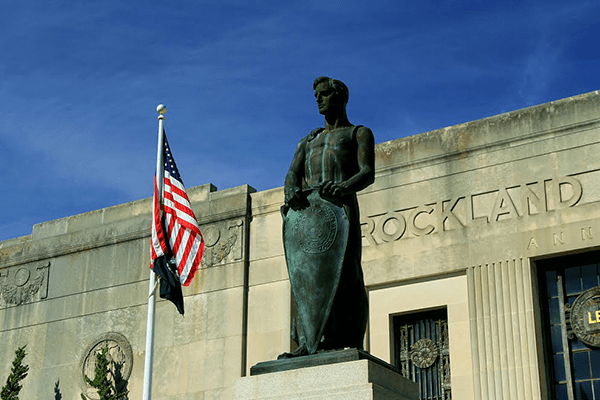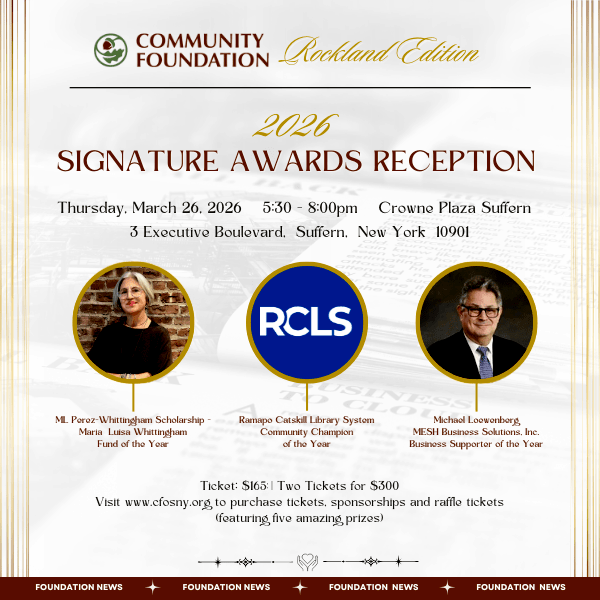|
RCBJ-Audible (Listen For Free)
|
Rockland County Supreme Court Judge Does Not Address Conflict of Interest In Ruling
By Tina Traster
Rockland County Supreme Court Judge Amy Puerto has ruled that Clarkstown’s town attorney can represent the town in a lawsuit filed by the Supervisor and a councilman against the town to eliminate term limits.
Rather than address potential conflict of interest, the Judge ruled that the board’s 2-1 vote to retain outside counsel was invalid “because it did not constitute a majority of the five-member town board,” as required by the General Construction Law.
“Accordingly, the vote to retain Attorney Szalkiewiecz is a nullity, and therefore the Order to Show Cause… is dismissed,” wrote Puerto. The Order to Show Cause previously entered by the court prevented the case from moving forward until the conflict issue was resolved.
Councilmembers Frank Borelli and Patrick Carroll had voted to hire Daniel Szalkiewicz to defend the town against a lawsuit filed in late December by Supervisor George Hoehmann and Councilman Don Franchino. Councilman Michael Graziano voted against hiring outside counsel, satisfied to have the town attorney defend the town. Although Hoehmann and Franchino recused themselves from the vote, the judge relied on arguments from Deputy Town Attorney Kevin Conway, who has been chosen to defend the town, that a three-member vote was needed to constitute a majority of the board. Only Borelli and Carroll voted to hire Szalkiewicz.
“Councilmembers Borelli and Carroll still intend to vigorously defend this lawsuit on behalf of the town as intervenors,” said Szalkiewicz.
In the first hearing on the case last Monday, Puerto raised the issue of the “appearance of conflict” but made no mention of that issue in her ruling.
“I’m shocked that the Judge didn’t touch upon the biggest issue, the conflict issue,” said Carroll. “But this doesn’t change the fact that any reasonable person, and any attorney would recognize clear conflict for a town attorney to defend a lawsuit brought by Hoehmann and Franchino against the town.”
Conway, in Monday’s court appearance, had argued he is not personally conflicted and said attorney Daniel Szalkiewicz “mistakenly believes he’s been hired by the town board” to defend the town in a lawsuit filed last month by Town Supervisor George Hoehmann and Councilman Donald Franchino.
But the judge had asked “What about the appearance of conflict?”
Carroll also said, “Perhaps Judge Puerto recognized there is a conflict and that is why we are allowed to act as intervenors.” However, as intervenors, Borelli and Carroll will not have a path to appeal the case if they lose.
Conway, Szalkiewicz continues to assert, is “inherently conflicted, intertwined with conflict,” and is part of the town attorney’s office that has been drafting the papers on how the term limits law can be overturned. “He has worked under the town supervisor. He serves on behalf of the town. Clearly the person who is paid by the town board should not be defending plaintiffs who’ve sued the town board.”
This will be a high-profile case for newly elected Supreme Court Judge Puerto. Hoehmann and others have been campaigning in several public forums to do away with term limits, saying at various times they are illegal because of the wording, while later pointing to what the case alleges – that term limits would have needed a voter referendum eight years ago to have been legal in the first place. He’s taken on this fight on the eve of his eight-year term.
Clarkstown’s term limit law only allows for repeal by a super-majority of the board — that is a majority plus one vote. As written, to repeal the term limit law would require four votes. The current law was passed eight years ago by a unanimous vote of the town board. Hoehmann championed the law and voted affirmatively for term limits at the time.
Legal minds are also debating the implication of how doing away with Clarkstown term limit law would set a precedent on all supermajority laws.
For months, Hoehmann, assisted by town attorney Craig Johns, toyed with trying to get rid of term limits by claiming the language of the law was vague.
But in a fresh turn, the suit alleges the law should be voided because residents “never had the opportunity to decide the issue at a public vote.” Plaintiffs are essentially saying that the term limit law was not valid because it was not passed by a public referendum and contains a provision for repeal only by super-majority.














